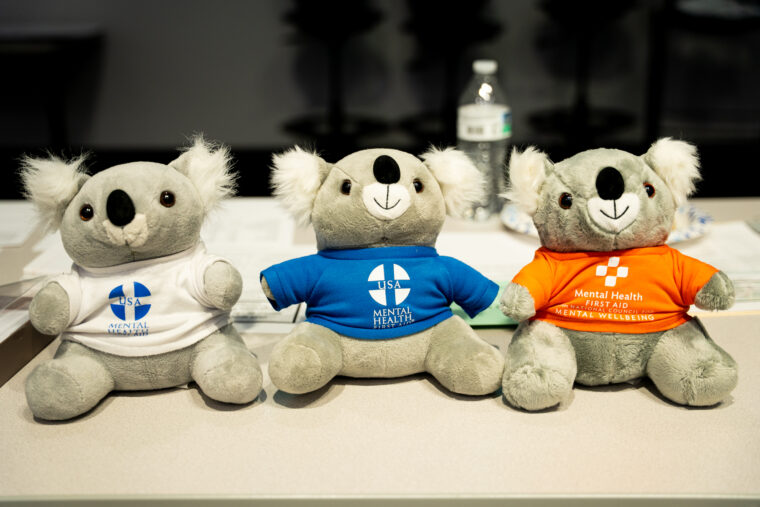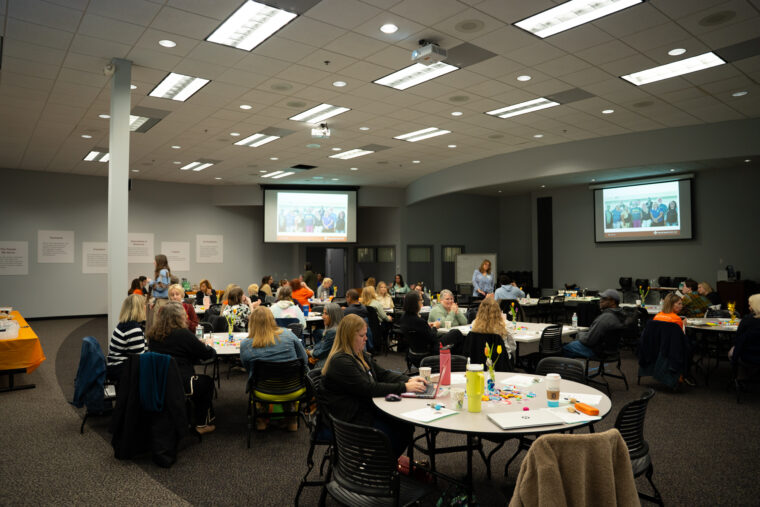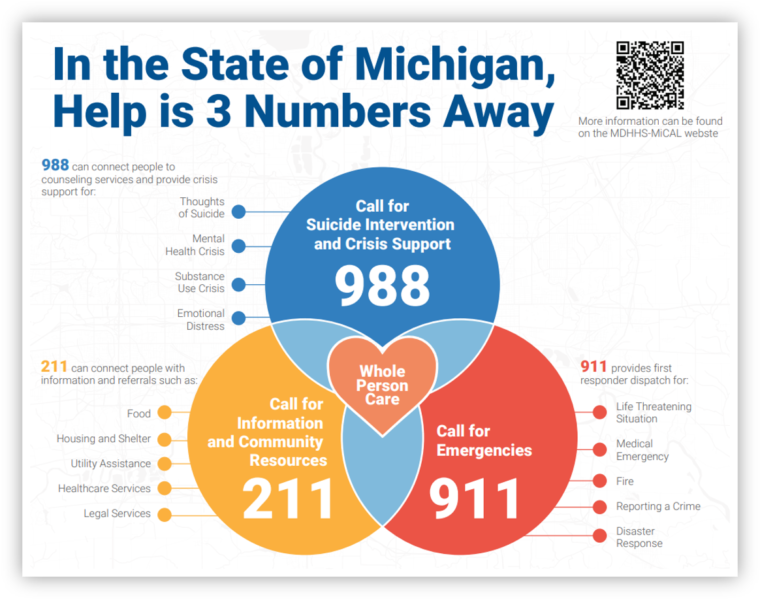Written by Tanya Terry
In 2023, there were 49,316 deaths by suicide in the U.S. and 1.5 million suicide attempts, according to the National Institute of Health (NIH).
“Looking at Michigan specifically, we are looking at a number of about 1, 487 in 2023,” stated Rachael Vitale, director of behavioral health grants at Hope Network.
She added: “For Michigan, you’re looking at 14.4 deaths by suicide per 100, 000 people. The United States in 2023 had a13.9 deaths per 100,000. In Genesee County, there were about 15.0.”
Vitale pointed out that over the last five years, the deaths by suicide in Genesee County have been rising, according to State of Michigan statistics.
“Looking back at around 2019, we were down to about 13.2. Moving up, there were increases from 13.9, 14.4, 14.9 to 15.1.”
Vitale said that although everyone has their own reasons for being in a suicide situation, relationship problems were common.

“It could be loss of a job,” she added. “It could be loss of a loved one. Individuals who have had suicide death in their circle, in their life, go on to die by suicide or attempt suicide at a much higher rate than individuals who don’t have a suicide in their immediate circle. It could be incarceration. It could be trouble with school or bullying. There are so many reasons why! I know in economically disadvantaged areas where things have started to move in a direction that people don’t want them to, tensions are higher. People are struggling with a lot more just of those day-to-day problems – from trying to make ends meet, or losing a job.”
In data from 2015, 42% of those who had attempted suicide and were surveyed indicated that a relationship problem was one of the reasons. The next highest category was a crisis in the past two weeks or upcoming two weeks. 28% of those surveyed reported problematic substance abuse, and 22% had physical health problems they reported. 16% had job or financial problems, 9% had a critical or legal problem and 4% were experiencing loss of housing.
September is National Suicide Prevention Month. The month is dedicated to raising awareness, remembering those affected by suicide and connecting individuals with life-saving resources.
And, fortunately, there has been research on how to successfully decrease the chance or risk of suicide attempts and deaths.

“It’s everyone’s responsibility is how we view it at Hope Network. Every single interaction you have with someone can be suicide prevention. You never know what someone is going through, and a little kindness goes a long way. One of the things we’re really trying to do is train as many people from the community as we can – because you’re much more likely as a community member to be that first contact for someone who is having a suicide crisis, versus a mental health professional.
“I personally had a family member who was having a suicide crisis. I had taken the Question, Persuade, Refer QPR training at Hope Network when I had first started. I was able to use what I had learned to help my family member navigate that crisis. We called 988.
“The goal of the training is really to share how you help someone navigate those steps and also to learn about all the resources out there to help in a suicide or mental health crisis.”
The QPR training is a 75-minute training where participants learn to ask the question: ‘”Are you thinking about killing yourself?” Participants also learn how to persuade people to get help, and they learn how to refer the person in the crisis to help.

Vitale said most people thinking about attempting suicide respond positively when asked if they are thinking about killing themselves.
“Most people want to be helped,” she said.
Another training HOPE Network offers includes Mental Health First Aid training, an 8-hour training which helps gives participants the skills they need to reach out and provide initial assistance and support to an individual who may be developing a mental health or substance use problem, or experiencing a crisis.
Additionally, Assessing and Managing Suicide Risk (AMSR) is a one-day or half-day training designed for health and behavioral health professionals.
If you or someone you know is in a suicide crisis, call or text 988 to be connected with a trained crisis counselor.
For details or to register for one of the Hope Network trainings, visit https://www.eventbrite.com/cc/mental-health-first-aid-2196149.


